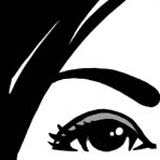Miss California Says “No” to Gay Marriage
Carrie Prejean's Controversial Statement
What’s not to love about a beauty pageant? All those pretty ladies prancing around in swimsuits and ball gowns, exhibiting talents like hula dancing or baton twirling. Plus, there’s the Q&A section, which usually finds our contestants searching for a way to work “world peace” into an answer about Americans finding the U.S. on a world map (Miss South Carolina, I’m looking at you).
It was in this Q&A portion of April’s Miss U.S.A. contest where Carrie Prejean made herself a household name. In response to a question about same-sex marriage from openly gay celebrity blogger and contest judge Perez Hilton, Prejean explained that in America, people can “choose same-sex marriage or opposite marriage,” but that she personally believes “that a marriage should be between a man and a woman.”

The fact that a beauty pageant contestant espoused views championed by social conservatives isn’t all that surprising. What is surprising is that it has become newsworthy.
Prejean is Miss California, crowned in a state now known as much for Hollywood and Disneyland as for Proposition 8. Prejean quickly became the silver bullet of the antigay-marriage bloc, signing on as the spokesperson for the National Organization for Marriage. She’s made a number of stops on the morning talk shows, becoming more and more definitive in her stance on marriage rights, and has gone so far as to say that her “controversial” answer cost her the Miss U.S.A. crown.
Huh. I had no idea Prejean’s answer would be considered “controversial” on the pageant circuit.
After all, anti-gay activists would have us believe that the upsurge of support for marriage equality is a result of radical judges and legislatures, not a reflection of an overall change in attitudes. Those darn East Coasters and Iowans allowing same-sex nuptials. According to Frank Schubert of Protect Marriage, these decisions offer a momentary boost for gay rights, but ultimately don’t impact California and certainly don’t indicate a shift in viewpoints.
So why the focus on Prejean? After all, she’s not the first young woman from San Diego Christian College to oppose marriage equality. Plus, as much as I hate to admit it, her response-although not as articulate as one given by, say, Barack Obama-is in line with the way many Democrats, including our president, respond to the issue: It’s a subject best left to each state to decide.
There are two reasons for this focus: First and foremost, everyone loves a good scandal, and Prejean seems to have no shortage of them. Right away, there were the reports of her breast augmentation surgery, financed by the Miss California Organization. Then came the details of her parents’ divorce, in which each party used “gay” as an insult and her mother told a young Prejean that any male with a moustache is gay. But the icing on the cake is the leaking of multiple naughty modeling photos that almost got her stripped of her duties. It’s a trifecta, folks.
Secondly, and certainly more importantly, the hoopla surrounding Carrie-gate reflects a shift in the general opinion toward gay marriage. Prejean’s answer isn’t what’s newsworthy; the fact that her answer caused outrage is what’s worth talking about.
Ruminating on what a beauty queen thinks about political hot-button issues may seem rather trivial, especially with an economy in shambles, hillsides on fire, and the NBA playoffs in full swing. But, like it or not, seemingly inconsequential events like Miss U.S.A. pageants reflect current cultural attitudes and provide a snapshot of existing, and perhaps changing, mindsets. In a backward sort of way, Prejean unequivocally revealed what no amount of polling and campaigning could:
People are becoming more and more supportive of marriage rights for same-sex couples.
While California anxiously awaits the Supreme Court’s decision on the legality of Prop. 8, this is an encouraging bit of news to those of us on the front lines of the marriage equality battle. It is widely expected that the court will uphold Prop. 8, which means the issue likely will be put before the voters, possibly as early as 2010. By that time, it will hopefully be even more controversial not to support equal rights.



